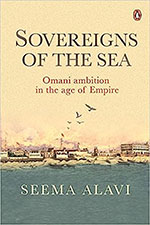Taking cues from a set of recent writings with a critical rigour in assessing the past published in the field of maritime studies, one can safely say that there is a move to ‘reorient’ the narratives and assumptions of ‘standard’ histories of Asia’s maritime world written mainly by western scholars. Nowhere is this welcome trend more pertinent than in the postmortems of western writings on the history of people living in the Arab side of the Indian Ocean region. The most significant attempt along this line has been Sultan bin Mohamed Al Qasimi’s book The Myth of Arab Piracy in the Gulf[1] published in 1988, which in a way demystified the western accounts of the Persian Gulf’s history often portrayed as a land of ‘marauders’, ‘pirates’ and ‘religious fanatics’, cashing in on useful bits from the story of his own clan.[2] This ‘repositioning’ of the region in the writings of history addresses a complex interaction of histories of different regions, peoples and times, genealogical interconnectedness of spatially-dispersed communities, their political imaginations, and efforts to share diverse experiences which are previously unheard of or completely excluded from the preview of ‘standard’ history.

The Sultans as Agents of Change: ‘Through the Optic of Micro-history’
MH Ilias
SOVEREIGNS OF THE SEA: OMANI AMBITION IN THE AGE OF EMPIRE by Seema Alavi Penguin/Random House, 2023, 424 pp., INR 999
August 2023, volume 47, No 8
